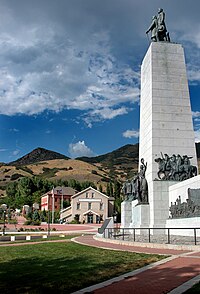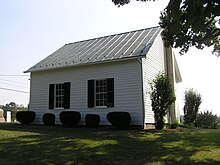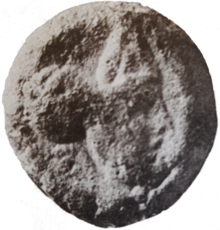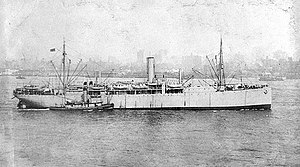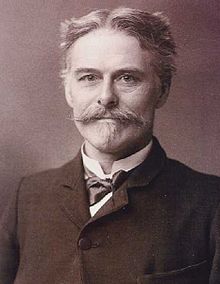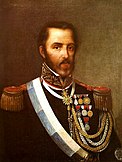Portal:History
The History Portal
History (derived from Ancient Greek ἱστορία (historía) 'inquiry; knowledge acquired by investigation') is the systematic study and documentation of the human past. History is an academic discipline which uses a narrative to describe, examine, question, and analyse past events, and investigate their patterns of cause and effect. Historians debate which narrative best explains an event, as well as the significance of different causes and effects. Historians debate the nature of history as an end in itself, and its usefulness in giving perspective on the problems of the present.
The period of events before the invention of writing systems is considered prehistory. "History" is an umbrella term comprising past events as well as the memory, discovery, collection, organization, presentation, and interpretation of these events. Historians seek knowledge of the past using historical sources such as written documents, oral accounts or traditional oral histories, art and material artifacts, and ecological markers.
Stories common to a particular culture, but not supported by external sources (such as the tales surrounding King Arthur), are usually classified as cultural heritage or legends. History differs from myth in that it is supported by verifiable evidence. However, ancient cultural influences have helped create variant interpretations of the nature of history, which have evolved over the centuries and continue to change today. The modern study of history is wide-ranging, and includes the study of specific regions and certain topical or thematic elements of historical investigation. History is taught as a part of primary and secondary education, and the academic study of history is a major discipline in universities.
Herodotus, a 5th-century BCE Greek historian, is often considered the "father of history", as one of the first historians in the Western tradition, though he has been criticized as the "father of lies". Along with his contemporary Thucydides, he helped form the foundations for the modern study of past events and societies. Their works continue to be read today, and the gap between the culture-focused Herodotus and the military-focused Thucydides remains a point of contention or approach in modern historical writing. In East Asia a state chronicle, the Spring and Autumn Annals, was reputed to date from as early as 722 BCE, though only 2nd-century BCE texts have survived. The title "father of history" has also been attributed, in their respective societies, to Sima Qian, Ibn Khaldun, and Kenneth Dike. (Full article...)
Featured picture
Did you know (auto generated)

- ... that the 2022 Boca Raton Bowl was the first bowl game loss in Liberty program history after three wins in their first three appearances?
- ... that "Rich Men North of Richmond" by Oliver Anthony was the first single to debut at number one on the Billboard Hot 100 with no previous chart history for its artist?
- ... that activist Gerlin Bean co-founded the Organisation of Women of African and Asian Descent in 1978, an event described as "a watershed in the history of Black women's rights activism"?
- ... that the market hall of Niort opened in 1871 and has been listed as a historic monument since 1987?
- ... that the Pulitzer jury said that Ford Strikers Riot is "a brutal picture, it sums up much of the labor history of 1941"?
- ... that in 1993, the U.S. Supreme Court upheld West Virginia's largest punitive damages award in history, awarding $10 million – 526 times larger than the compensatory damages?
Edward Drinker Cope (July 28, 1840 – April 12, 1897) was an American zoologist, paleontologist, comparative anatomist, herpetologist, and ichthyologist. Born to a wealthy Quaker family, he distinguished himself as a child prodigy interested in science, publishing his first scientific paper at the age of 19. Though his father tried to raise Cope as a gentleman farmer, he eventually acquiesced to his son's scientific aspirations.
Cope had little formal scientific training, and he eschewed a teaching position for field work. He made regular trips to the American West, prospecting in the 1870s and 1880s, often as a member of U.S. Geological Survey teams. A personal feud between Cope and paleontologist Othniel Charles Marsh led to a period of intense fossil-finding competition now known as the Bone Wars. Cope's financial fortunes soured after failed mining ventures in the 1880s, forcing him to sell off much of his fossil collection. He experienced a resurgence in his career toward the end of his life before dying on April 12, 1897. (Full article...)
On this day
December 1: World AIDS Day (2024); Great Union Day in Romania; Rosa Parks Day in some states and cities in the United States
- 1828 – Returning to Buenos Aires with troops who fought in the Cisplatine War, Juan Lavalle (pictured) deposed provincial governor Manuel Dorrego, reigniting the Argentine Civil Wars.
- 1918 – With the signing of the Act of Union, Denmark recognized the Kingdom of Iceland as a fully sovereign state in personal union through a common monarch.
- 1923 – The Gleno Dam in the Italian province of Bergamo failed due to poor workmanship, flooding the downstream valley and killing at least 356 people.
- 1971 – A period of political and economic reforms in the Socialist Republic of Croatia came to an end as the League of Communists of Yugoslavia decided to purge the state's reformist leadership.
- 1988 – Five armed men hijacked a bus carrying schoolchildren and a teacher in Ordzhonikidze (now Vladikavkaz, Russia), and were later given an Ilyushin Il-76 aircraft and ransom for the release of the hostages.
- Saint Eligius (d. 660)
- Martin Heinrich Klaproth (b. 1743)
- Edwin Francis Jemison (b. 1844)
- Masao Horiba (b. 1924)
Selected quote
Who controls the past controls the future: who controls the present controls the past.
— George Orwell, author, in Nineteen-Eighty Four
Related portals
More Did you know...
- ... that the underground Fortress of Mimoyecques (pictured) was built by Nazi Germany to bombard London with 10 shells a minute using the V-3 supergun?
- ... that Howard P. Perry was the first African American recruit in the United States Marine Corps?
- ... that the Chester city walls form the most complete circuit of Roman and medieval defensive town walls in Britain?
- ... that China's first female director was adopted by the first Premier of the People's Republic of China?
- ... that the Medieval Merchant's House in Southampton was being used as a brothel when bomb damage during the Blitz revealed the building's important medieval architecture?
- ... that the Sumerian "river of paradise", the Hubur, derived partly from real geography before becoming a demonic fantasy?
- ... that Bill Foley's photograph "The Last Smile" shows Anwar Sadat only moments before his assassination?
- ... that the 1911 Sarez earthquake triggered a huge landslide, forming the tallest dam in the world?
Topics
Categories

History • By period • By region • By topic • By ethnic group • Historiography • Archaeology • Books • Maps • Images • Magazines • Organizations • Fictional • Museums • Pseudohistory • Stubs • Timelines • Chronology • People • Wikipedia historians
WikiProjects
![]() WikiProject History •
Ancient Near East • Australian History • Classical Greece and Rome • Dacia • Former countries • History of Canada • Chinese history • European history • Heraldry and vexillology • Indian history • Jewish history • Medieval Scotland • Mesoamerica • Military history • Middle Ages • History of Science
WikiProject History •
Ancient Near East • Australian History • Classical Greece and Rome • Dacia • Former countries • History of Canada • Chinese history • European history • Heraldry and vexillology • Indian history • Jewish history • Medieval Scotland • Mesoamerica • Military history • Middle Ages • History of Science
WikiProject Time • Days of the Year • Years
WikiProject Biography • Composers • Political figures • Saints • United States Presidents
Things you can do
 |
Here are some tasks awaiting attention:
|
Associated Wikimedia
The following Wikimedia Foundation sister projects provide more on this subject:
-
Commons
Free media repository -
Wikibooks
Free textbooks and manuals -
Wikidata
Free knowledge base -
Wikinews
Free-content news -
Wikiquote
Collection of quotations -
Wikisource
Free-content library -
Wikiversity
Free learning tools -
Wiktionary
Dictionary and thesaurus

